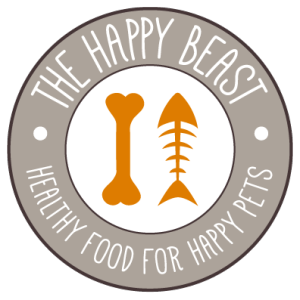In honor of Earth Day, we’re thrilled to announce The Happy Beast has received gold certification as part of the 2017 Lafayette Green Business Program!
This is our third year in the program, and along with 93 other Lafayette Green Businesses, is one of the ways we work to exemplify the best of Lafayette, help shape a vibrant green economy, and champion a more sustainable future for our customers and residents. Overall, the sustainability upgrades Lafayette businesses have made are saving over $50,000 per year on utility bills and are equivalent to taking 100 cars off the road.
Click here for a full list of participating Lafayette businesses and remember to support them by shopping locally.
At The Happy Beast, we are extremely proud to achieve the highest award for waste diversion, water conservation, and energy efficiency, and we couldn’t have done it without our amazing customers! You can read more about our dedication to sustainability on our blog, but here’s a quick list of our current initiatives:
Read more 
How To Help Your Dog Love Baths
Bathing and grooming a dog are important bonding and hygienic experiences for owner and pup. But for some, grooming and bathing our dogs is not always an easy task even for our water-loving friends. In the past, I’ve been lucky enough to work alongside a few wonderful groomers and have bathed countless dogs myself. Here are a few tips and tricks to help get your pup to enjoy a bath (or at least tolerate it)!
Read moreWhat to Know about Grain-free Diets & DCM
Over the last year, and especially ramping up over the last couple of months, we have had a lot of discussions with customers regarding grain-free diets, and concerns about their potential of causing heart disease in dogs – more specifically, canine dilated cardiomyopathy (DCM). We feel it is important to address this topic and review new research with an open mind by looking at all the information and facts available.
Read moreEasy Tips for Low-Waste Living
“We don’t need a handful of people doing zero waste perfectly. We need millions of people doing it imperfectly.” – Anne Marie Bonneau
This year, in honor of Earth Day, we’re once again taking the opportunity to review our sustainability efforts and find ways to improve. The planet needs us and there are lots of ways that we can help. The problems and solutions can often seem overwhelming and unattainable. However, the reality is that small changes in our awareness, attitudes, and lifestyles can have huge impacts on our environment and make a world of difference. Movements start with people (and now our pets!), and we want to encourage everyone to join us in our efforts to reduce waste and become more sustainable in everything we do. Because the choices we make matter.
Read moreA Greener Beast
We’re preparing for a greener 2019 and we can achieve our sustainability goals with your support:
Introducing Wild Nosh Pets
Happy Earth Day: Celebrating the Lafayette Green Business Program
In honor of Earth Day, we’re thrilled to announce The Happy Beast has received gold certification as part of the 2017 Lafayette Green Business Program!
This is our third year in the program, and along with 93 other Lafayette Green Businesses, is one of the ways we work to exemplify the best of Lafayette, help shape a vibrant green economy, and champion a more sustainable future for our customers and residents. Overall, the sustainability upgrades Lafayette businesses have made are saving over $50,000 per year on utility bills and are equivalent to taking 100 cars off the road.
Click here for a full list of participating Lafayette businesses and remember to support them by shopping locally.
At The Happy Beast, we are extremely proud to achieve the highest award for waste diversion, water conservation, and energy efficiency, and we couldn’t have done it without our amazing customers! You can read more about our dedication to sustainability on our blog, but here’s a quick list of our current initiatives:
Read more